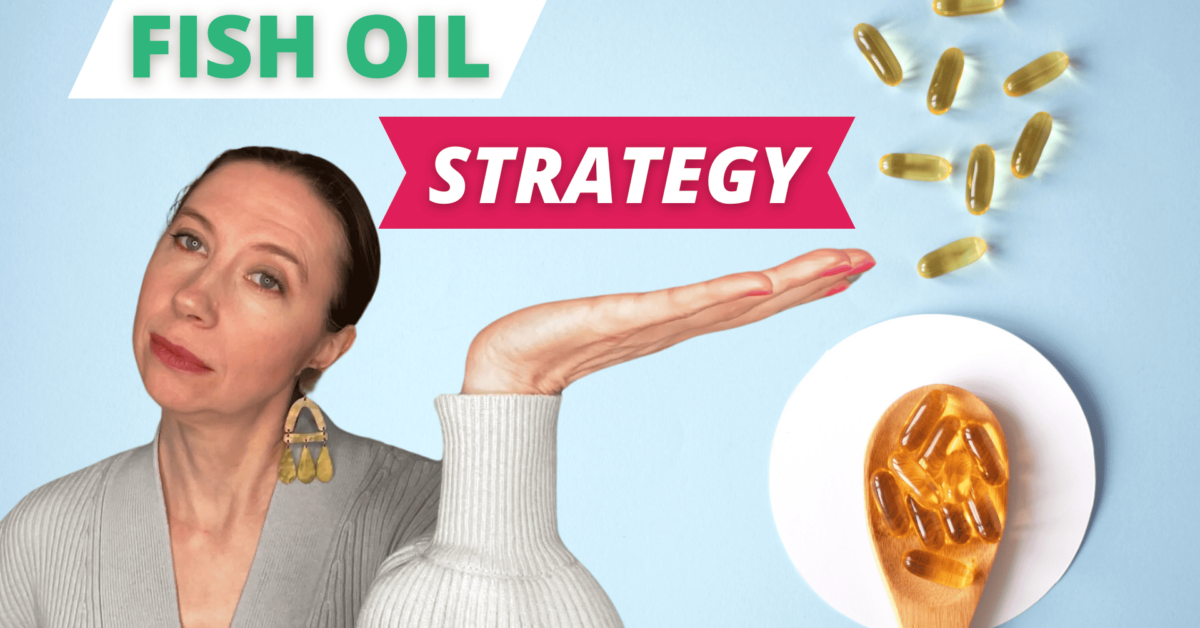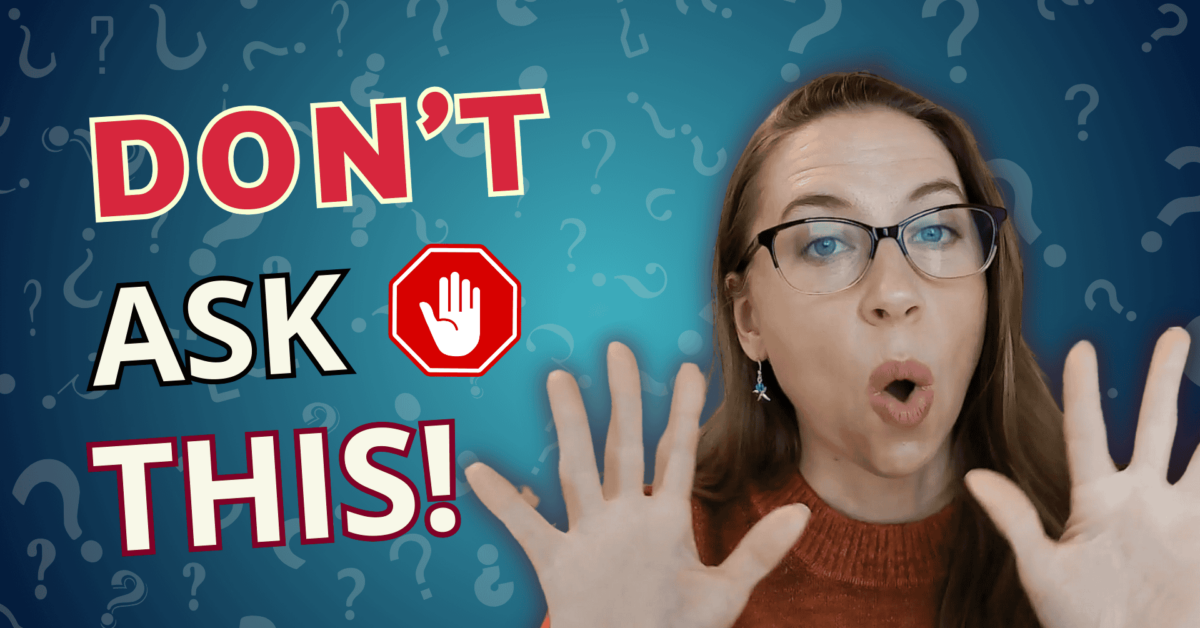In this post, I’m going to walk you through the thought process of fish oil dosing. There’s lots of thinking that goes into getting the right dosage, and dosages do change over time. So knowing the strategy is important.
A parent commented on one of my fish oil product review videos, and this is what they wrote, “There’s a children’s version of these gummy chews, 600 milligrams for three years and older. My son is 11 years old. What would be the right dosage for him? 600 milligrams or 1,200 milligrams?”

It’s a great question. So let’s learn how to think this through. In this post, what I want to do is walk you through the thought process of how to think about fish oil and dosage. I’m going to do this in a general way so that any parent can apply it to their situation. This way you can come back here multiple times, read this post, and adjust the dose based upon what you read. Or sometimes you’re even considering stopping it.
This parent, their child, is 11 years old, and they’re wanting to know what the right dosage is. Now, your child might be three years old. Your child might be twenty-five years old, you might be in all different areas of the journey of regaining health. So again, I’ll present this in a general way so that regardless of where you are on the journey, this will benefit you.
Diet
The first thing to think about with fish oils is making sure there’s adequate nutrition from a good diet. I know, I know. Adequate fish oil coming from the diet is really important. That’s ideal. That’s your basic first step. You always want to get as much nutrition from food as possible so you don’t have to over-supplement. Who wants to have just tons and tons of bottles of supplements? Nobody. So food is really that first step. And I understand there are certain challenges with food, but it can become very easy to say, “Okay, what’s a supplement for that?” Because it just adds up. I understand it can be annoying and frustrating thinking about diet, but you just don’t want to get caught in that trap of trying to supplement everything rather than making sure there’s really good nutrition for your child. That’s the first step in a strategy.
The question was about specific dosage, 600 milligrams versus 1,200 milligrams. I’m assuming these numbers are the total omega-3s and not the specifics of either EPA or DHA. That is an assumption that I’m going off of. And hopefully, you’ve already considered diet. So what’s next?
When to take fish oils
The time of year also impacts dosage. So typically, if you’re in a climate that has a winter, it doesn’t have to be a brutal winter, but has a winter, typically you’re going to need more fish oil, more healthy fats during that wintertime rather than summer. Dosage can change, just like with vitamin D, right? There are a few supplements that are seasonal, and they’ll change throughout the year based on what your child needs. Fish oil is one of those seasonal supplements. So please consider what season you’re in and know how that impacts dosage. That’s the second thing.
Testing and priorities
The third thing to think about is testing and priorities. So you might ask yourself, “How specific do I want to be with fish oils? Do I have a real concern that omega-3s are low and low enough that testing would be necessary?” You could do a blood test and actually quantify the levels of the omega-3s that your child has in their body. This is so you’re not really guessing. With autism, there’s many things that have to be addressed. Some of them you can do qualitatively, like, “Okay, we’ll just give this amount.” But for others, you really want to be quantitative and you really want to know the exact dosing.
Whether you do a test or not depends on a few things. It depends on priorities.
- Is omega-3s high enough on the list of priorities that you’ll want to spend money and do a blood test? It might not be.
- Is this high enough that I really want to start fine-tuning omega-3s and getting specific? Have you addressed everything else already?
- Another thing to consider, whether to do a test or not, is what are the symptoms that you’re focusing on.
If you’re in the beginning of the journey, there’s more of this systemic inflammation. Your main focus wouldn’t be fish oil. It would actually be understanding the source of the inflammation, targeting that, and then introducing more than just one anti-inflammatory. Then once you remove that cause of the inflammation, then your focus can shift. And you don’t want to use fish oils as a way to overcome something that is inflammatory. You really want to figure out what that source of inflammation is and remove it.
I don’t know where the parent who commented is on this journey. Their child is 11. Maybe you’ve isolated certain medical hurdles and you’ve figured out what’s causing different amounts of inflammation, or maybe you haven’t. These are the things to consider. I’m trying to answer this question as general as possible so you can have the strategy. You want to think about testing. Is this important? Is this important enough that I want to focus solely on this? Have I eliminated other large sources of inflammation?
When priorities shift
Now, as you progress, and if you’ve eliminated some of those initial large sources of inflammation, maybe your child is going to school and academics become really more of that focus.
Fine-tuning
It’s that fine-tuning into that ADHD area that a lot of parents shift into. With that, there’s a product called Equazen that has clinical trials. I have a video on that. Then there’s also a product called Neuro 1000, and there is my review about that too.
Why change your fish oil?
Now, the logic of these products as opposed to other fish oil products is that when you’re focusing on attention, focus and brain-academic things, DHA is needed more in the brain, and that’s why those products have DHA.
Neuro 1000 has more DHA than EPA, which is very unusual. Usually, it’s the opposite. As you can see, when you start to fine-tune, that’s when a product like Neuro 1000 might make sense because the ratios are switched. DHA is higher than EPA. If your focus is on academics, that makes sense. If your focus is not in academics, then that is not the kind of fish oil that you would want.
You might be in the area of working on spelling and working on attention and sleeping is great, and pooping is great, and tantrums, you don’t even remember them, right? And you’re just like, Okay, my child’s in mainstream class, but struggling a little bit, or maybe you can just really see attention in academic performance is where you want to have your intense focus. Then something like Equazen would be the right product, again, because it has those clinical trials showing that it achieves focus and that academic improvement. So that’s when you would switch from something like a Nordic Naturals, which is a general fish oil, to something like Equazen or even Neuro 1000.
Fish oils at the beginning of the autism journey
If, let’s say, you’re in the beginning of the journey and you haven’t done much of isolating inflammation and all of those, and different tests and stuff, then you might just want to start with the basic dose of the Nordic Naturals product that you mentioned, so the 600 milligrams. And you might want to start there so that at least you’re providing your child’s body with some healthy fats. Get it going, start seeing some changes, and circle back when you’ve decided to reassess.
The healing process
The important part of the autism journey is you focus on three things:
- address it,
- achieve it, and then
- reassess.
That’s really the thought process. There is a lot that goes into the thought process. We’re just talking about fish oil. It seems like something so easy. But you want to be really specific. You want to be very strategic, so that you’re not wasting time or energy or effort.
Conclusion
In the beginning, you have these large issues and you’re sorting things out. To get started, 600 milligrams of fish oil of omega-3s that your child will take is certainly important, but it’s not going to overcome any of those issues. It’s supportive. When you start fine-tuning and you’re getting into academic focus, that’s where you can really impact some of these issues. The whole idea is to keep taking a step in the right direction.
I hope this strategy makes sense. I think it’s been a great question. Thank you for your comment. I really appreciate it.




